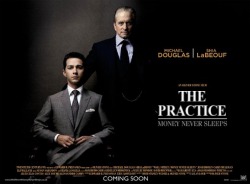 A program on Radio 4 alerted Dr No to new developments in the world of MBAs. Shocked by the public backlash against MBA graduates for their part in shafting the developed economies, a group of 2009 Harvard Business School alumni have borrowed from Hippocrates to conceive the MBA Oath, an ‘inspiration and accountability tool’, to guide MBA graduates through the business jungle.
A program on Radio 4 alerted Dr No to new developments in the world of MBAs. Shocked by the public backlash against MBA graduates for their part in shafting the developed economies, a group of 2009 Harvard Business School alumni have borrowed from Hippocrates to conceive the MBA Oath, an ‘inspiration and accountability tool’, to guide MBA graduates through the business jungle.
Putting aside a natural tendency to view the prospect of MBA graduates taking an ethical oath as more hypocritical than Hippocratic, the accompanying book is still thought provoking. Amongst other things it introduces the idea of the ‘MBA mind’ – that cut throat, greed-is-good brain that powers the suits in their relentless pursuit of profit – not, of course, that the authors word it that way.
At a time when many – including our government – wish to see a wholesale shift in health service provision from the public to the private sector, and so give rise to an unprecedented injection of ‘MBA minds’ into health service management, it is perhaps prudent to look at just how MBA minds, such as those recently spotted by JD, tick.
Despite five-star MBA speak, (‘It is my belief that in order to be a fit for purpose organisation, we need to create a health eco-system…’) and lofty values (‘Profit is not our priority…although The Practice is a limited company, you can be sure that patient care (not profit) is our clinicians’ priority…’) (and note the separation of limited company and clinicians; and since when has a limited company not existed to maximise shareholder value?) – The Practice plc have recently gobbled up ChilversMcCrea – itself said to be ‘the largest alternative provider of NHS primary care services in the UK’.
Although The Practice has a team of clinician leads – with a wonderful circus of Carry On names: Prof Loveday ‘leads’ on GUM; Dr Horst-Dieter Hass (substance misuse – if only it were eating disorders!) and Dishy Dr Petrie (urgent? – care) – the company is run by suits, headed up by Chief Executive Peter ‘We can create a very large and successful business here’ Watts who, if he hasn’t got an MBA mind, surely – given his profile – should have one…
Back to that Radio 4 MBA program , the book and and the MBA mind. What struck Dr No in the broadcast was a report about an apparently common MBA ‘Fairness Quiz’ in which pollsters typically ask the punters:
‘A hardware store has been selling shovels for $15. The morning after a large snow storm, the store raises the price to $20. Please rate this action as: (a) completely fair (b) acceptable (c) unfair (d) very unfair.’
Now the interesting thing (or is it – somehow this all seems predictable) is that MBA students answer this question quite differently to the rest of us. While only 18% of the public said they considered raising the price to be ‘completely fair’ or ‘acceptable’, a whopping 75% of MBA students reckoned it was right on for the store to raise prices. Greed, it is clear, is alive and kicking in today’s MBA mind.
The authors – good MBA graduates that they are – advance all manner of plausible reasons as to why it is improper to view MBA students as greedy. Dr No is more in line with Mary Colum who once said to Ernest Hemingway, ‘the only difference between the rich and other people is that the rich have more money’.
Dr Grumble recently reminded us that here in the UK the NHS doesn’t do that badly despite a remarkably low per GDP expenditure on health. Dr No strongly suspects that this state of affairs exists precisely because we have kept the ‘MBA mind’ out of the NHS.
